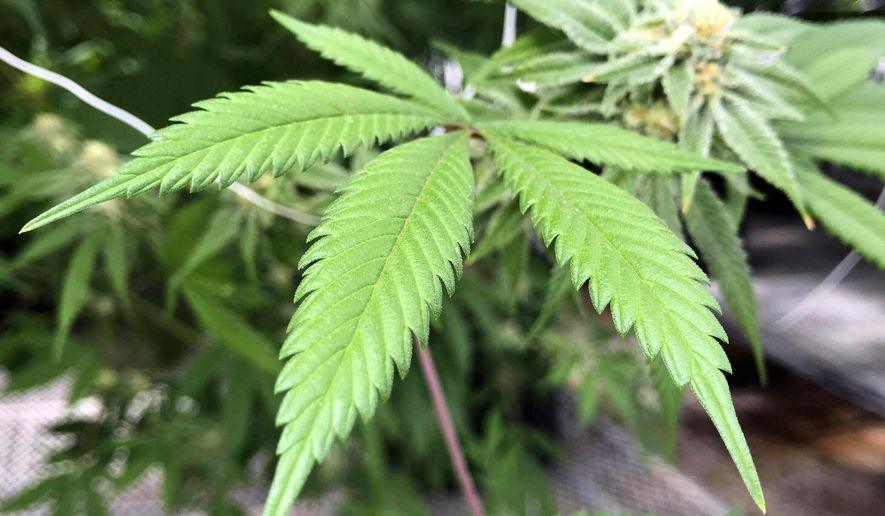OPINION:
Recreation, meet taxation. States across the nation are rushing into the business of selling recreational marijuana alongside the already-legalized medical variety. For new customers, the draw of a doobie is access to a fresh form of self-entertainment. For government officials, it’s a virgin market to tax. Sadly, the economic benefits of joining the pot parade might not outweigh the resulting human costs.
Illinois is the most recent state to green-light the seven-pronged herb, making it legal for recreational use on Jan. 1, following Michigan by a month. Already the psychoactive drug is proving to be a hit with residents in the Land of Lincoln. Numerous state-licensed marijuana dispensaries, including half of those in Chicago, sold out during the first week of business and closed their doors temporarily in order to restock.
The tax rate on Illinois’ pot products varies from 10 percent for cannabis with a THC concentration of less than 35 percent, to 20 percent for THC-infused munchies, to 25 percent for goodies loaded with THC above 35 percent and able to produce the highest high.
Statewide, sellers reported 271,000 transactions worth $10.8 million so far, and industry experts are expecting sales to reach $420 million in Illinois by year’s end and hoping tax revenue generated for the state treasury approaches $57 million.
That’s a lot of green, but not nearly enough for a money-hungry state ruled by a host of tax-and-spenders. Annual budget deficits top $3 billion and Gov. J.B. Pritzker, a Democrat, is calling for the adoption of a progressive “fair tax” that would target high earners with higher taxes. Accordingly, Illinois residents would need to out-smoke the wildfires of Australia to pay off the debts incurred by their political leaders.
Other states are equally high on the prospect of new riches derived from the cannabis market. With the addition of Illinois, 11 states allow its sale for recreational use, and medical marijuana has been legalized in 33 states.
Unique twists in Illinois’ legislation demonstrate that legalization is about more than just the lust for lucre. It’s about making marijuana mainstream. The new law empowers the governor to expunge criminal records of thousands of small-time drug users. In short order, they could make a new start as, well, drug dealers — licensed by the state. It also channels pot sales tax revenue to poor communities impacted by the war on drugs. Is this a great country or what?
While the world of weed has turned over a new leaf, some facts have not budged. Cannabis is still prohibited by federal law, setting up a legal enigma. As residents of Illinois, individuals of legal age may purchase the drug, but as Americans, they may not. It’s one of life’s little conundrums, kind of like how physicists tell us light can be both a wave and a particle at the same time. Rather than risk a headache trying to sort it out, enthusiasts in pot’s expanding domain can kick back with a joint and watch the authorities arrest each other.
There is another worry to consider: Marijuana is still a threat to human health. The National Institute on Drug Abuse states that pot has 11.8 million young American adult users, and growing numbers of teenagers toke it daily. Among the drug’s short-term effects are changes in mood, impaired body movement, difficulty with thinking and problem-solving, impaired memory and, when taken in high doses, hallucinations, delusions and psychosis.
Describing long-term effects, the institute cites a New Zealand study in collaboration with Duke University that found heavy weed use during teen years “lost an average of 8 IQ points between the ages of 13 and 38.” Lest it be thought that federal killjoys may have failed to stay current with the golden age of grass, their warning is recent — dated December 2019.
Marijuana legalization advocates argue that if Americans are allowed to pickle themselves with alcohol, it’s only fair that they should be free to stone themselves, too. The line of reasoning is a little like arguing that as long as daredevils are still showing up to ride a faulty roller coaster, yesterday’s fatal accident is no cause to shut it down. As Forrest Gump reminded, “Stupid is as stupid does.”
As the pot parade picks up momentum, it has yet to be determined whether revenue from drug sales will cover the inevitable rise in the human costs of mind-bending recreation.




Please read our comment policy before commenting.